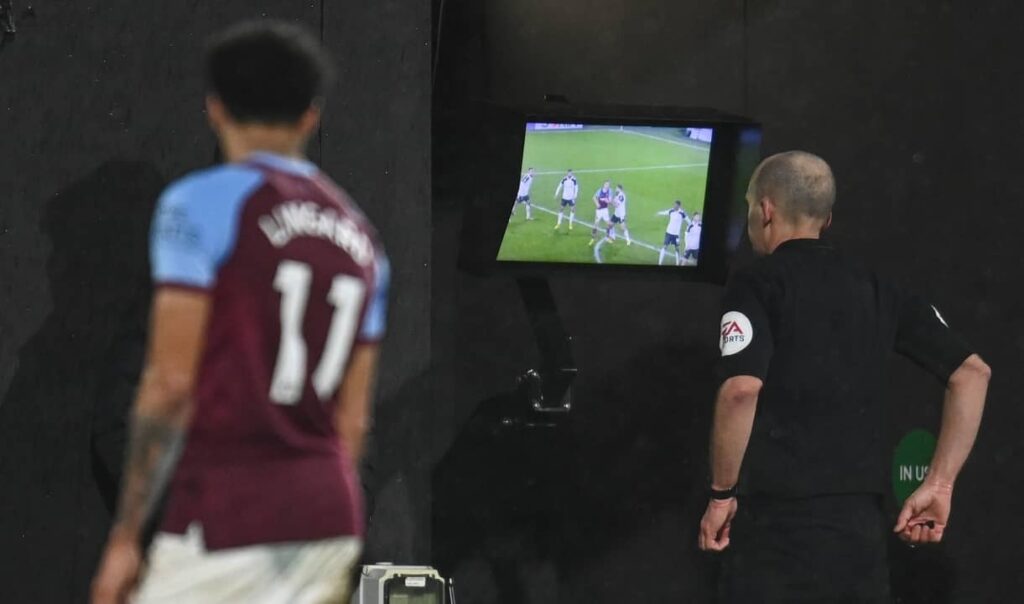Football
First woman to referee the Premier League and more referees will be from ethnic minorities
In English football, the PGMOL and the FA – the highest body responsible for English referees – have not enjoyed much public popularity in recent years. Mainly due to the increasingly large number of controversial decisions. That’s also why English referees seem to want to please the fans a bit.

In English football including Premier League, the PGMOL and the FA – the highest body responsible for English referees – have not enjoyed much public popularity in recent years. Mainly due to the increasingly large number of controversial decisions. That’s also why English referees seem to want to please the fans a bit.
Ironically, the island’s media agrees with the management of English clubs that they keep delegating the same supposedly “famous” names to the same teams’ matches even several times a season, and their past complaints are constantly ignored. The media even writes openly about the fact that somehow everyone suspects that it must be quite an interesting spectacle inside the PGMOL. And especially when referees are being assigned to Premier League matches!
Not much though, even the otherwise very well informed and infiltrated British media won’t find out, because despite constant apologies from the body responsible for the English PGMOL referees, they don’t communicate with them. Even the organisation responsible for English referees doesn’t even have a website – it doesn’t explain why it allows referees to go whistle in, say, Saudi Arabia and make a big mistake in two days.
PGMOL won’t say why referees are not allowed to be interviewed by the media in a post-match interview. In short, they don’t explain, they just occasionally publicly bemoan something – a referee’s mistake, to be precise – and promise something and survive the cause of the referee’s bad decisions until it blows over.
Now the PGMOL organization is introducing with fanfare the first woman with a whistle in elite competition, or perhaps the first dark-skinned referee in fifteen long years. The timing was right. In recent years, the PGMOL has built a reputation for its very low standards as a closed, anti-feminist and racist organisation.
With a virtually non-existent minority amongst the referees, it is the two quickly promoted new faces that are the obvious answer, which for a while will once again distract from the refereeing mistakes of the long-entrenched Taylor and other “famous” English referees in the Premier League.
They have long struggled with near zero minority representation in the English top flight, have been blamed for it more than once, and it must be added that these have always been not just shouts in the dark, but facts backed up by numbers, supplemented by plenty of narratives from judges of colour about their practice in ascending the hierarchies expressed by the five levels of refereeing.
England is somehow all too famous for its attitude to racism. Kneeling as part of the ‘Black Lives Matter’ campaign, black and white tape, increasing fines and ‘bans’ for clubs for fan behaviour. Overall, British society is extremely sensitive on the subject of racism.
Roughly forty or so referees for the Championship and Premier League to date have all been white Englishmen, with over forty percent minority representation among the players, through the presence of those from abroad, of course. That’s quite a disproportion and shows that the racism associated with football has grown beyond ‘just’ the occasional insults to players on the pitch and may well be responsible for the paltry two and a half per cent minority representation in the top four divisions of English football.
That is really small by the standards of England today, when in other spheres of club football they are far more represented and of the more than 32,000 registered referees in England, just under nine per cent are African-American.
So the finger has begun to be pointed at the Football Association of England, which has previously been the target of criticism because it alone awards licences, promotes referees and clubs, and the jump from ‘county to league’ has proved to be the overwhelmingly final station for ‘non-preferred referees’. Belatedly, but nonetheless, we are now seeing the implementation of a plan for greater representation of ethnic minority referees in the higher competitions and it could finally bring in some new names. So within three years, England plans to expand the number of registered female and African-American umpires by 1,000 for each group.
For a long time, the Premier League has tried to be a hub for the best players and managers in the world, so the British public can’t understand why they haven’t tried to find the really best umpires from around the world in all this time. At the moment, (only I suspect) Australian Jarred Gillet is the only non-English referee in the Premier League, and interestingly, as recently as last season, not one of the elite referees was from multicultural London.
New African-American referee Sam Allison made his debut in Sheffield’s match against Luton on so-called Boxing Day, becoming only the second black referee in the Premier League. The first was Uriah Rennie (he refereed from 1997 to 2008) and with over 300 games blown, he built a reputation as a firm and solid referee, but he was the last one for the next fifteen years. Sam Allison took up umpiring twelve years ago and later had to choose between a career as a fireman and a full-time umpire.
Rebecca Welsh made her debut three days before Sam Allison when she successfully whistled Fulham’s match with Burnley, the first woman in Premier League history to do so, and she still took it pretty hopping. Earlier this year she only got her first crack at a Championship game, she has only been fully committed to it since 2019 and has whistled a Women’s Super League or World Cup game. The effort is worth it though, and at the current level, new referees probably don’t necessarily need years of training and this is probably the best time to throw in the towel.
Source: Premier League












